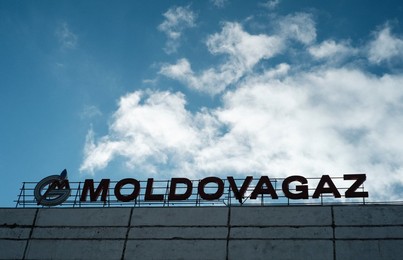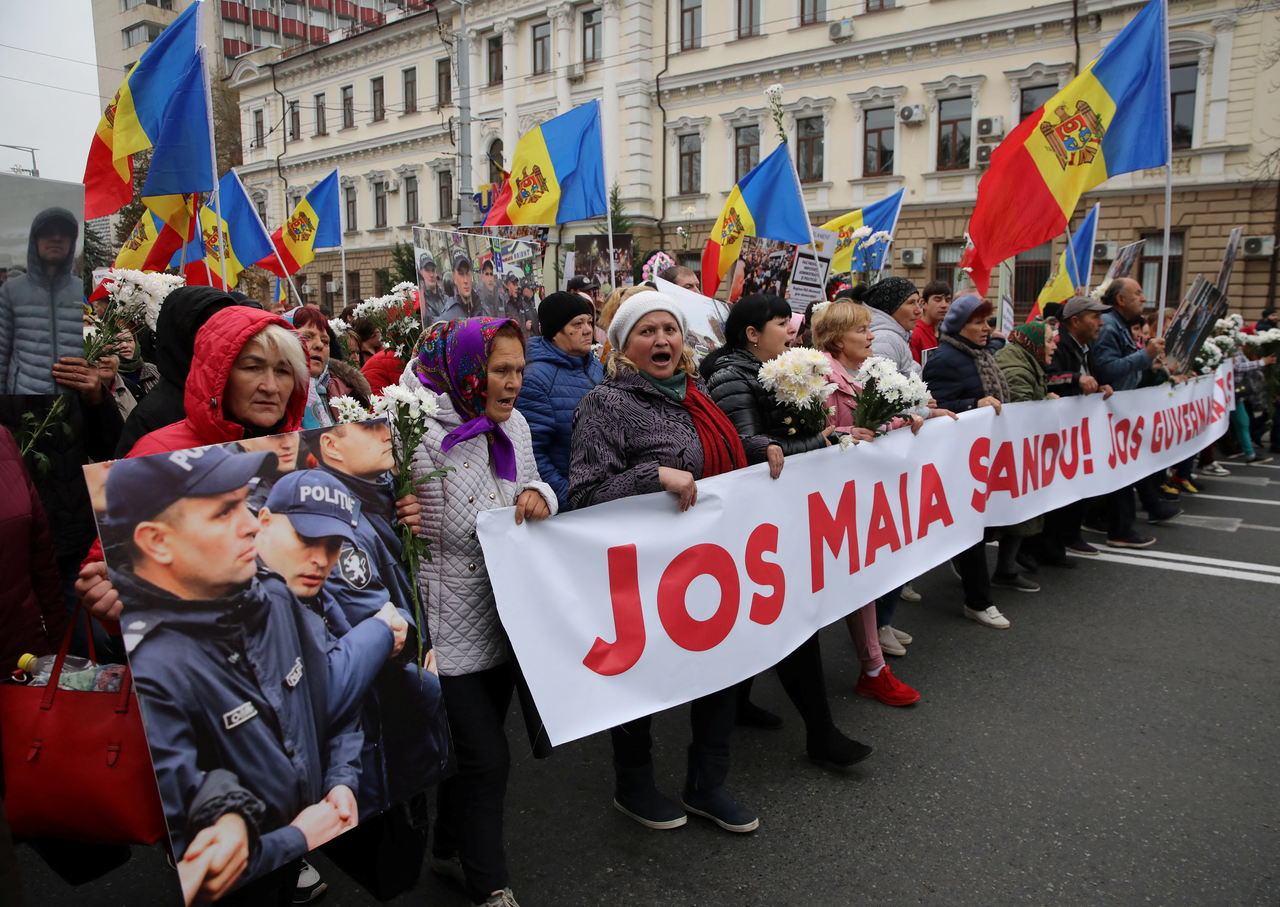Strengthening State Security a Challenge for the Pro-European Moldovan Government
On 30 March, the Moldovan parliament began work on a package of bills reforming the Security and Intelligence Service. This is an element of the pro-European government’s response to Russia’s destabilisation of the country. In February, President Maia Sandu accused Russia of attempting an armed coup in Chişinău. However, the imminent threat of this is contradicted by the appointment of new prime minister Dorin Recean, the former interior minister, in mainly an image-related move. It is in the interest of Poland to strengthen the stability of Moldova as it will contribute to the security of the Eastern Flank of the EU and NATO, as well as guard Ukraine from the rear.
 VLADISLAV CULIOMZA/Reuters/Forum
VLADISLAV CULIOMZA/Reuters/Forum
Alleged Coup d’état
Sandu and the ruling pro-presidential Party of Action and Solidarity (PAS) are reacting increasingly firmly to Russia’s threats. In response to criticism by the Russian Foreign Ministry of the change of name of the official language from Moldovan to Romanian in March 2023, the Moldovan authorities accused Russia of interfering in its internal affairs and in April refused entry to the president of Tatarstan, who was to join the election campaign for the pro-Russian autonomous Gagauzia. The uncompromising policy of Sandu and PAS is the result of reflection on the ineffectiveness of the previous one of easing tensions. Until autumn 2022, they avoided reacting to Russian threats that Moldova could be the target of an invasion, meant to intimidate Moldovan society and persuade it to participate in the anti-government protests led by the Şor Party.
As a part of the new policy—citing Ukrainian intelligence materials provided by President Volodymyr Zelensky—on 13 February, Sandu accused Russia of preparing an armed coup. Elements of it were to be assaults on public buildings and hostage-taking in which citizens of Russia, Belarus, Serbia, and Montenegro who had been given military training would also participate in this. However, there was no visible coup attempt, and the government’s actions, including the refusal of Serbian football fans or Montenegrin boxers to enter Moldova, were preventive and demonstrative. This is reflected in the reaction of Western partners who, although they assured of their readiness to provide comprehensive support for Moldova, did not confirm the threat of a coup. The intensity of the threat was further contradicted by the change of prime minister made by Sandu at that time, which in fact had mainly an image dimension.
Change of Prime Minister
The resignation of Natalia Gavriliţa’s cabinet on 10 February 2023 was an internal party reshuffle, lacking a political crisis or a personal reason for stepping down. On the same day, Sandu nominated Recean, who had been the front-runner within PAS since last fall to be the prime minister. In the new cabinet, most ministers retained their portfolios.
The aim of the change of government was to distance PAS from an unpopular politician such as Gavriliţa and to rebuild trust before the autumn local elections. Support for the party has fallen to around 35%, according to an iData survey at the end of 2022, although it won 53% of the vote in the 2021 parliamentary elections. In contrast, the pro-Russian Electoral Bloc of Communists and Socialists and the populist Şor Party would win 34% and 17% of the vote, respectively, based on the poll. The main reason for the change in mood is the economic crisis and the impoverishment of society caused by the war in Ukraine.
The change of government also served to remove unpopular ministers from it without a media scandal. Among the four ministers who did not retain their posts were Justice Minister Sergiu Litvinienco and Deputy Prime Minister and Minister of Infrastructure and Regional Development Andrei Spînu. Litvinienco was blamed by the public for the slow reform of the justice system and Spînu of concluding an unfavourable long-term contract with Gazprom in 2021.
Challenges of the Recean Government
The reason for Recean’s appointment was his image as a manager able to run the administration and enforce the implementation of reforms. His experience is that he was Sandu’s security advisor in 2022-2023 and the first civilian interior minister in 2012-2015. At that time, he reformed the police and border police, which enabled the EU and others to apply visa-free travel to Moldova.
The new prime minister announced the continuation of Gavriliţa’s policy, but with greater consistency. Its priorities are to be European integration, the fight against corruption, economic revival, and—which is a new aim—strengthening the security of the state. However, PAS still will have structural difficulties in governing because most of its politicians come from NGOs or corporations and have little experience in political and state office management. Underinvestment in the administration also will remain a limitation—ministries staff only a few dozen people and low salaries discourage specialists from applying to work with them.
Recean’s experience is intended to help PAS in particular in the implementation of justice reforms, which are crucial in the fight against corruption. In March 2023, Sandu demanded the creation of an Anti-Corruption Court for judges and top officials within three months and the resumption of the work of the Supreme Council of the Magistracy within a month. Paralysis of the council results from the resistance to verification and removal of judges involved in corruption. There is no quorum in the Council, as five of the six judges that were members resigned and the General Assembly of Judges is postponing the election of successors.
Recean is also expected to ensure the implementation of the reform of the Security and Intelligence Service (SIS) before the local elections. At present, it cannot effectively counteract the penetration of the country by Russian and even Transnistrian services, as evidenced by the powerlessness of the SIS in the face of kidnappings from inside Moldova of people who were treated by the regime in Tiraspol as its enemies. The haste advocated by Sandu, however, carries the risk of abuse. The Venice Commission, as well as Moldovan civil liberties organisations, point out that the bills—drafted by the SIS itself—do not guarantee an apolitical character and democratic control over the service, and at the same time extend its powers of surveillance in an indefinite way.
In the face of threats caused by the Russian invasion of Ukraine, Recean’s cabinet is also to strengthen the state’s self-defence capabilities. Although this does not translate into the abandonment of the neutrality enshrined in the constitution, which means also not applying for NATO membership, it means the end of the policy of PAS predecessors of neglecting the army. However, Moldova is unable to finance military modernisation. According to Deputy Defence Minister Valeriu Mija, this would require expenditure of around €250 million annually for 10 years. Meanwhile, the budget of the Ministry of National Defence, which increased in 2023 by about 70%, is €85 million, or 0.55% of GDP. That is why Moldova counts mainly on donations from Western partners—in 2021-2022, it received €47 million, and in 2023 it is to receive €40 million from the European Peace Facility. Its priority, in view of the numerous air space violations by Russian missiles, is to obtain mobile radar, which would be the nucleus of a modern air-defence system.
Conclusions
The more assertive PAS policy is intended to convince the public of Moldova’s ability to resist Russian interference in its internal affairs and potential aggression. An element of this policy probably was Sandu’s accusation against Russia of an attempted military coup in Chişinău. The government’s ostentatious reaction is intended to demonstrate its readiness to preventively combat Russia’s ongoing attempts to destabilise Moldova and undermine public confidence in its pro-European course. The government’s new policy is also aimed at attracting Western attention and gaining more support, which is currently focused on Ukraine. The result of this is the announcement that the EU will launch a civilian expert mission on hybrid threats in Moldova in May.
The change of prime minister and several top ministers was a reshuffle within PAS itself, calculated to distance the party from now-former Prime Minister Gavriliţa, who was blamed by part of society for the deteriorating economic situation and the lack of results from reforms. Recean, who has an image as an effective manager, may help PAS rebuild support—according to an iData poll from March 2023, the party has gained 3 percentage points. His experience in managing the administration, which Gavriliţa lacked, may translate into an acceleration of reforms, especially of the judiciary, special services, and modernisation of the army.
Poland is among the countries most actively supporting Moldova’s aspirations for EU membership. The success of these efforts will be determined not only by consistent reforms but also by maintaining public confidence in the legitimacy of the accompanying troubles. At the Summit of the European Political Community in Chişinău on 1 June 2023, Poland can use the opportunity to seek further comprehensive EU financial and political support for the Moldovan reforms. At the same time, Poland should indicate that formal dialogue on the next steps of countries aspiring to membership can only be effective in the EU forum as part of enlargement policy.





